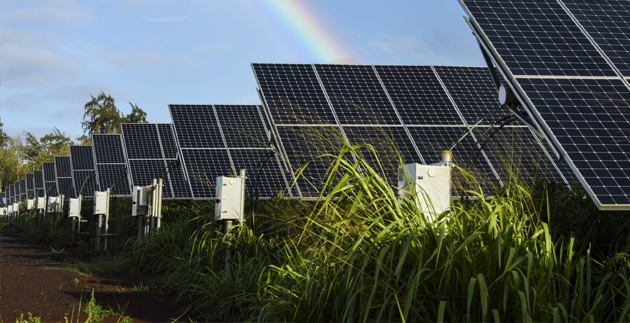About US
Within the partnership between the governments of China, Sri Lanka and Ethiopia the United Nations Development Programme (UNDP) is implementing a Triangular South-South Cooperation (TSSC) Project on Biogas, Solar and Biomass – Transitioning to Sustainable Energy Uses in the Agro-Industry in Sri Lanka (referred to as the TSSC project) to address sustainable development challenges related to international cooperation, access to energy for improved service delivery, sustainable integrated farming practices and to support Sri Lanka reach its Greenhouse Gas (GHG) emission reduction national targets through trial and demonstration of the potential of biogas and solar in the agro-industry sector.
Objective

The Project supports Sri Lanka GHG emission reduction national targets through trial and demonstration of the potential of biogas and solar in the agro-industry sector. The Project is implemented under a South-South Cooperation framework and as such presents itself as a learning platform for both China and Sri Lanka to engage and cooperate at the international level in renewable energy technology (RET) transfer for GHG emission reduction.
This project frames RET transfer within broader development objectives. The selected technologies, solar, biogas and biomass, are technologies targeted under project to achieve emission reduction through changes in energy resources used and reduced electricity consumption in agricultural activities.
1. Supports capacity development for GHG emission inventory in the agro-industry. This TSSC project component brings support by developing an overview of the carbon footprint of different agricultural activities. The support opens the project to other government priorities and commitment to voluntary emission reduction by targeting emission reduction in the agriculture, livestock, and agro-processing sectors. The TSSC project will also result in increased coordination between energy institutions and other governmental organizations, as well as between national and local agencies, enabling condition for NDCs.
2. Tests biogas and solar potential for energy savings and GHG emission reduction potential including technology demonstration, and as such the TSSC project will support around 15-20 demonstration of solar, biogas and biomass uses in the agro-industry sector.
3. Tests solar, biogas and biomass potential for agro-industry productivity gains and income generation.The overall objective is to reach a state of climate resilient economic growth. In that sense, this project brings additional value by demonstrating the technology potential to enhance the productivity and development of the agro-industry sector, which still stands as a major economic driver for people’s livelihoods and Sri Lanka growth.
The project presents itself as a learning and innovation platform for China, Sri Lanka and Ethiopia to engage and cooperate at the international level in renewable energy technology (RET) transfer. The project outputs, activities and budgets will be implemented/utilized independently in Sri Lanka and Ethiopia. The latter phase of the project will facilitate the exchange of expertise, knowledge and technology among China, Sri Lanka and Ethiopia, building on the unique technology transfer experience among the three countries. So far, during the initial stage of implementation, the Sri Lanka Sustainable Energy Authority (SLSEA) and the five selected provincial councils and key stakeholders have given positive feedbacks on the TSSC modality and are keen to see the promising outcomes come to fruition.

